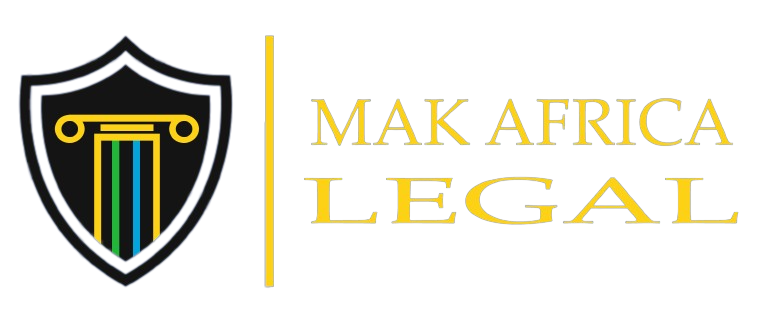
- Introduction — IP is not optional; it’s strategic
- Tanzania’s IP framework — the practical lay of the land
- Mining technology — patents, trade secrets and commercial scale-up
- Tourism branding & wildlife assets — trademarks and geographical indications
- Agri-processing & plant innovation — plant variety rights and trade secrets
- Where IP intersects with energy, oil & gas, and mining investments
- Practical checklist — what investors and operators should do now
- Conclusion — IP as a value multiplier, not a compliance headache
Why mining tech, tourism branding and agri-processing need a legal IP strategy now
Introduction — IP is not optional; it’s strategic
When companies and investors think about intellectual property (IP) they usually picture flashy tech start-ups or brand battles in developed markets. In Tanzania, however, IP is quietly becoming one of the clearest levers for competitive advantage across mining technology, tourism branding and agri-processing, three sectors driving the country’s next wave of value creation. Yet many practitioners treat IP as an afterthought. That is a costly mistake.
Below I explain how IP rights function in Tanzania, give concrete examples of where they matter (and why), and set out the pragmatic steps investors and operators should take now to convert knowledge, brands and biological innovations into protected, monetisable assets.

Tanzania’s IP framework — the practical lay of the land
Tanzania protects trademarks, patents and industrial designs through national legislation and administers registrations via the Business Registration and Licensing Agency (BRELA). For patents and regional protection, Tanzania is a member of the African Regional Intellectual Property Organization (ARIPO), which enables applicants to secure patent protection across member states through the Harare Protocol. This dual national/regional route is important for inventions that seek cross-border commercialisation.
Recent regulatory moves are also changing the IP compliance landscape — for example, Tanzania’s authorities have introduced (and signalled wider roll-out of) mandatory trademark recordation and merchandise mark regulation for imported goods, reflecting growing enforcement on branding and counterfeits. Investors should track these changes closely.
Mining technology — patents, trade secrets and commercial scale-up
Mining in Tanzania is not just about geology; modern value capture increasingly depends on technology — from ore-processing improvements to sensor arrays, AI for exploration, remote-monitoring systems, and environmentally safer extraction methods.
Why IP matters in mining tech:
- Patents protect novel extraction or processing techniques that can be licensed to operators across the region; using ARIPO’s Harare Protocol gives broader regional protection beyond a single national patent filing.
- Trade secrets & know-how (process recipes, calibration algorithms, data models) are often the real company-makers. Proper contractual protection (NDAs, employment IP clauses, secure data governance) is essential when collaborating with local contractors or research institutions.
Recent regulatory attention to the mining sector including technical support regulations and revisions of small-scale mining rules means that innovators must align IP strategy with licensing, loca participation and environmental compliance to be bankable and licensable.
Tourism branding & wildlife assets — trademarks and geographical indications
Tanzania’s tourism sector sells a story: place, experience, authenticity. Protecting that story is an IP exercise.
Key IP levers for tourism:
- Trademarks and service marks protect lodge names, tour brands, unique experience names (e.g., curated safari circuits) and marketing identities. With pending enforcement enhancements (trademark recordation and stricter merchandise mark rules), brands that are unregistered risk imitation and forced rebranding.
- Design rights and copyright protect unique interpretive materials, maps, logos and creative experiences that form part of a tourism product.
For wildlife-linked ventures lodges, community conservancies, branded conservation experiences, the brand and the story are the commercial asset. Register early and use contracts with local partners that clarify ownership of content, photography, proprietary itineraries and license rights.

Agri-processing & plant innovation — plant variety rights and trade secrets
Agri-processing innovations improved seed varieties, post-harvest processing techniques, or unique value-added product formulas are core to Tanzania’s food-value chain expansion.
What to protect and how:
- Patents or utility models — where processing machinery or unique biochemical methods are novel, patent protection (national or via ARIPO) can secure monopoly commercialisation.
- Trade secrets protect fermentation recipes, microbial strains or proprietary processing methods when patenting is not desirable or feasible.
Crucially, agri-enterprises must balance IP with the realities of seed systems, farmers’ rights and access to germplasm — PVRs should be structured to incentivise breeders while preserving food security and acceptable licensing terms for smallholders. Recent international guidance urges calibrated PVR implementation mindful of farmers’ rights and food security concerns.
Where IP intersects with energy, oil & gas, and mining investments
Energy and extractive projects increasingly bundle technology transfer, local manufacturing and environmental mitigation technologies into their business models. IP rights determine who owns the new technologies, who can service the assets locally, and who benefits from licensing revenues.
Practical intersections:
- Local content requirements may push foreign licensors to create local manufacturing or service entities; IP licensing must be carefully drafted to preserve control while meeting local capability development.
- Confidential environmental technologies (water treatment, emissions reduction) are frequently protected as trade secrets or by limited patents, planners should consider escrow arrangements that allow host governments access under defined contingencies.
- Host country scrutiny: regulators and lenders will expect clarity on IP ownership, local use rights and tech transfer commitments before approving large projects.
Practical checklist — what investors and operators should do now
- Map your intangible assets. Identify patents, trade secrets, trademarks, GI candidates, and any plant varieties or processing know-how.
- File strategically. Use BRELA for national registrations and ARIPO for patent/PVR protection where regional commercialisation is likely.
- Harden contracts. Draft NDAs, employee IP assignment clauses, licensing agreements, and clear JV IP terms before R&D or pilot work begins.
- Plan for local content. If projects require local production, plan IP licensing, manufacturing know-how transfer, and escrow mechanisms that preserve value while complying with local policy.
- Monitor enforcement trends. Track trademark recordation and merchandise mark rules as enforcement increases — unregistered but valuable brands can be vulnerably copied.

Conclusion — IP as a value multiplier, not a compliance headache
In Tanzania’s emerging industries, IP is not an optional compliance task: it is a strategic asset that defines who captures future rents from innovation, authenticity, and operational know-how. Mining tech patents, tourism brand protections and plant variety rights in agri-processing all convert local advantage into monetisable value, but only if protected, enforced and aligned with sector-specific regulations.
If you are planning investments, launching products, or building brand-led tourism or agri-business in Tanzania, now is the time to make IP part of the core business plan.
Need help turning IP into an asset?
Mak Africa Legal advises on IP strategy, filings (national & ARIPO), licensing agreements, technology transfer, and enforcement in Tanzania. Book a consultation to audit your IP position and build a protection roadmap tailored to your sector.
📧 mudrikat@makafrica.com | 📞 +255 746 954 394
Key sources & further reading
- BRELA & Tanzania Industrial Property Journal (industrial property administration and publications).
- U.S. Trade & Commercial Guide — Protecting Intellectual Property in Tanzania (overview of IP registration & practice).
- ARIPO / Harare Protocol and Plant Variety Protection developments (regional patent/PVR mechanisms).
- Recent regulatory developments: Tanzania’s mandatory trademark recordation and merchandise marks regulations (2025) — enforcement trend to watch.
- Mining regulatory updates and small-scale mining technical support regulations (2025) — context for mining-tech IP strategies.
